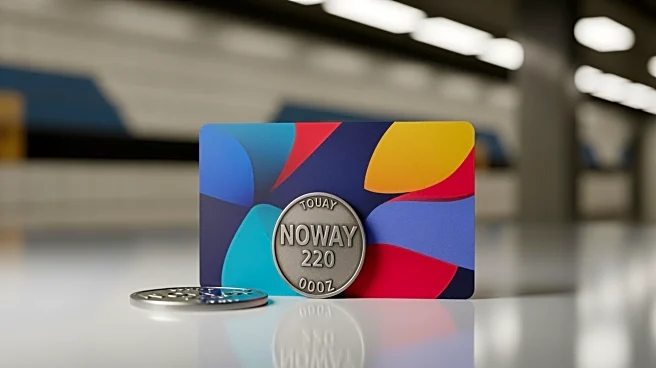What's Happening?
The meal kit industry is experiencing significant growth, with its value projected to increase from $25.79 billion in 2024 to $113.69 billion by 2033, according to a report from Straits Research. This
expansion is attributed to the convenience and cost-effectiveness of meal kits, which provide preportioned ingredients and recipes directly to consumers' homes. A CNET survey highlights that Americans waste an average of $125 monthly on unused grocery store food, suggesting meal kits as a solution to reduce food waste. Key industry players include EveryPlate, HelloFresh, Gobble, and Blue Apron, with Blue Apron recently allowing non-subscription meal orders.
Why It's Important?
The growth of the meal kit industry reflects a shift in consumer behavior towards health-conscious eating and reducing food waste. As more consumers opt for meal kits, traditional grocery stores may face challenges in maintaining sales. The industry's expansion could lead to increased competition among meal kit providers, driving innovation and potentially lowering costs for consumers. Additionally, the focus on homemade meals aligns with broader trends in health and wellness, impacting food industry standards and consumer expectations.
What's Next?
As the meal kit industry continues to grow, companies may explore new strategies to attract and retain customers, such as offering more diverse meal options or enhancing delivery services. The industry could also see increased investment in technology to streamline operations and improve customer experience. Regulatory changes related to food safety and packaging may arise as the industry expands, requiring companies to adapt to new standards. Consumer demand for sustainable and eco-friendly packaging could further influence industry practices.
Beyond the Headlines
The rise of meal kits may contribute to broader cultural shifts in how Americans approach cooking and dining. As convenience becomes a priority, traditional cooking methods and family meal traditions might evolve. The industry's focus on reducing food waste aligns with environmental sustainability goals, potentially influencing public policy and consumer advocacy efforts. Additionally, the success of meal kits could inspire similar innovations in other sectors, such as personalized nutrition and health-focused food services.










